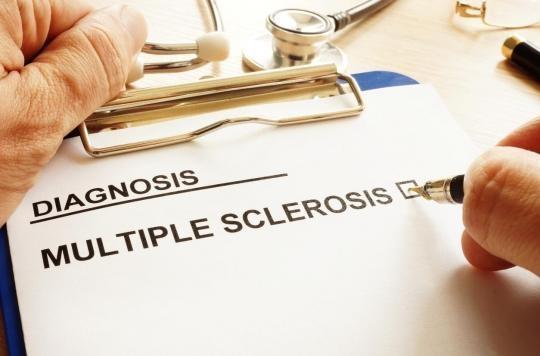Despite rumors, the hepatitis B vaccine does not increase the risk of multiple sclerosis, shows a new study. On the contrary, according to the researchers, vaccination, especially against the flu, would be associated with a reduced risk of developing this disease in the years that follow.

Vaccines are regularly the source of controversy. Many critics of the HPV vaccine, for example, have accused it of causing cervical cancer, although studies prove on the contrary that it protects. In 1998, a study made the link between MMR vaccine (measles, mumps, rubella) and autism. Although it has been regularly refuted since, certain beliefs die hard. This is particularly the case of that combining vaccine against hepatitis B and aggravated risk of multiple sclerosis, an inflammatory disease of the central nervous system. Although several studies have already proven that there is no link, new work published in journal Neurology July 30 drive the point home. On the contrary, vaccination, particularly that against influenza, is associated with a lower risk of multiple sclerosis, assure researchers from the University of Munich in Germany.
To reach these conclusions, they analyzed 223,000 medical records from the Bavarian health insurance system between 2005 and 2017. Of those followed, 12,262 were diagnosed with multiple sclerosis or later. By observing which vaccines had been administered and on what date, the scientists could not determine that “vaccination is a risk factor for developing multiple sclerosis”, they explain.
Prevention of infections could reduce relapses
On the contrary, vaccination, especially that against influenza, was associated with a lower risk of being diagnosed with multiple sclerosis within five years, they noted. “Infections being associated with relapses of the disease, the prevention of infections (by vaccination, editor’s note) could therefore reduce relapses and the risk of multiple sclerosis”, they argue.
Another possible hypothesis: “Stimulation of the immune system with vaccine antigens could have a positive effect on the autoimmune response that accompanies the onset and progression of the disease”. However, this potential “protective effect” must still be studied, admit the researchers.
How did this rumor originate?
These results are therefore in line with those of many studies already carried out on the subject. “The data compiled over more than fifteen years makes it possible to rule out with great certainty a link between vaccination against the hepatitis B virus and the occurrence of multiple sclerosis”, notes the government website Vaccination Info Service.
But where did this belief come from that vaccination against hepatitis B would increase the risk of multiple sclerosis? In the 1990s, when the hepatitis B vaccine was widely administered in France, several people developed multiple sclerosis soon after. Faced with the massive media coverage of these cases, health authorities had to suspend the vaccination campaign in schools, despite the lack of evidence to establish a direct link.
Today in France, multiple sclerosis affects more than 100,000 patients and 5,000 new cases are diagnosed each year. The disease is due to a dysregulation of the immune system, which attacks the brain and nerve fibers by destroying the myelin sheaths responsible for protecting neurons. Gradually, patients lose the use of their limbs, have vision, motor and sensory disturbances. Multiple sclerosis first manifests itself in a cyclic form before becoming progressive. Unfortunately, at present, no treatment exists to cure it. However, remedies are available to slow down its progression and improve the quality of life of patients.

.















